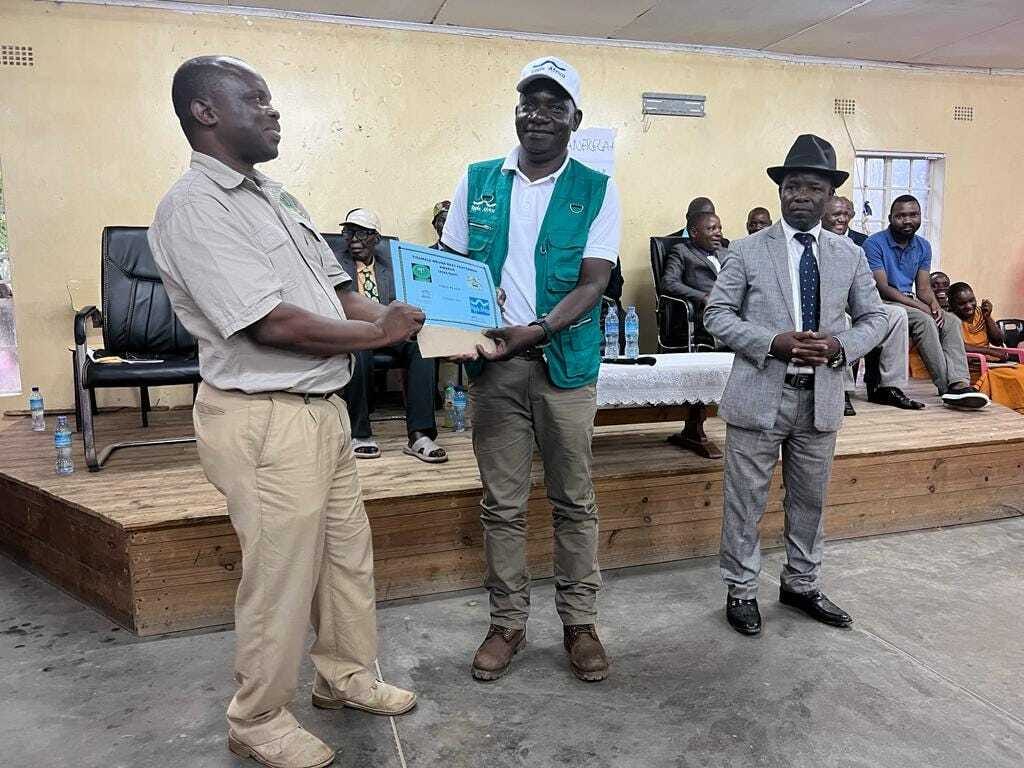
Malawi - Authorities have long been grappling with the persistent issue of illegal fishing in Lake Malawi, which has led to a decline in fish species in the lake, writes Brenda Chunga.
Contributing factors to this fish depopulation include the use of illegal fishing gear and deforestation, which leads to climate change that negatively impacts the lake's ecosystem.
Restoring Fisheries for Sustainable Livelihood on Lake Malawi (REFRESH), a consortium led by Pact Malawi and supported by USAID, has been putting interventions in place to restore fish populations and resources in the lake to address this urgent issue.
To encourage sustainable fishing methods, the project has collaborated with a number of stakeholders, including the government, non-governmental organizations (NGOs), regional chiefs, business people, and village and beach resources committees (VRC and BVC).
Member organizations of the REFRESH project have been enforcing laws to encourage fishermen to use legal fishing gear and giving instruction on fish breeding and sustainable fishing methods. The project also addresses aspects of climate change that cause the lake's fish population to decline.
"Fish depopulation is a serious issue that could have an adverse impact on the fish industry and human nutrition. As a result, the adoption of improved fish processing technologies and legal fishing techniques can aid in lowering post-harvest losses and raising the quality of fish produced by processors and fishermen,” said Dziko Calvin Malonje, Senior Business Advisor from TechnoServe, a collaborator on the REFRESH project.
Some beneficiaries of the REFRESH project have spoken highly of the positive changes it has brought to their fishing practices and businesses.
"Since its launch in 2019, fishermen and fish processors have adopted modern methods of fish processing, such as Chitofu 3 in 1, solar tent dryers, and icing, which are environmentally friendly and time-saving," said Martha Saini, a REFRESH project champion from Mwalamba Women Fish Processing and Marketing Cooperative in Monkey Bay, Mangochi.
Even though the project has made progress, some fishermen continue to use illegal fishing nets that only catch tiny fish, which is a major obstacle to efforts to boost fish populations.
Some fish processors also continue to smoke fish with firewood, which contributes to the area's deforestation.
"It is sad that, although the project is being implemented, some are still using illegal fishing gears and not adapting to modern ways of processing fish, a development that is negatively affecting the existence of fish in Lake Malawi," added Saini.
She further highlighted that the lack of collaborative efforts among stakeholders is also a factor contributing to the continuation of malpractices among people living along the lakeshore.
"The restoration of fish and resources in Lake Malawi requires collaborative efforts among chiefs, fishermen, area and village committees, and business people to end this vice. We should not only depend on the government, but the communities that are beneficiaries should own the project and its efforts," said Group Village Chinthambi.
John Banda, Research Officer for Monkey Bay Fisheries, asserts that for the project to produce noticeable results, cooperation among all concerned stakeholders in enforcing regulations is essential.
Aside from ensuring that communities continue to manage the lake's resources through Beach Village and Natural Resource Committees even after the four-year project concludes in September of this year, Banda also stated that the fisheries department will continue to monitor the project's progress in order to ensure that it is in line with Sustainable Development Goal (SDG) 14, which deals with life underwater.
In order to address the issues of illegal fishing and climate change and promote collaborative efforts among stakeholders, the REFRESH project aims to restore and sustainably manage fish populations and resources in Lake Malawi.